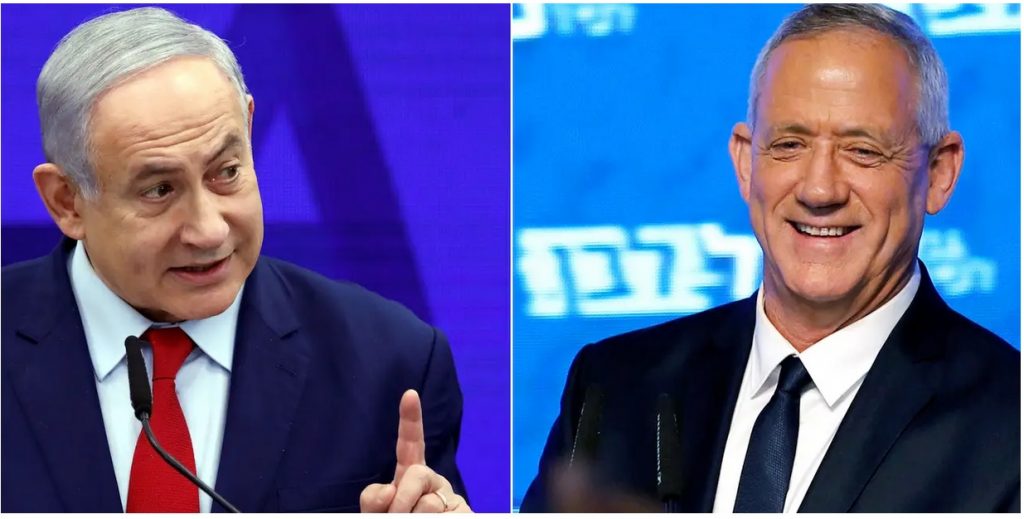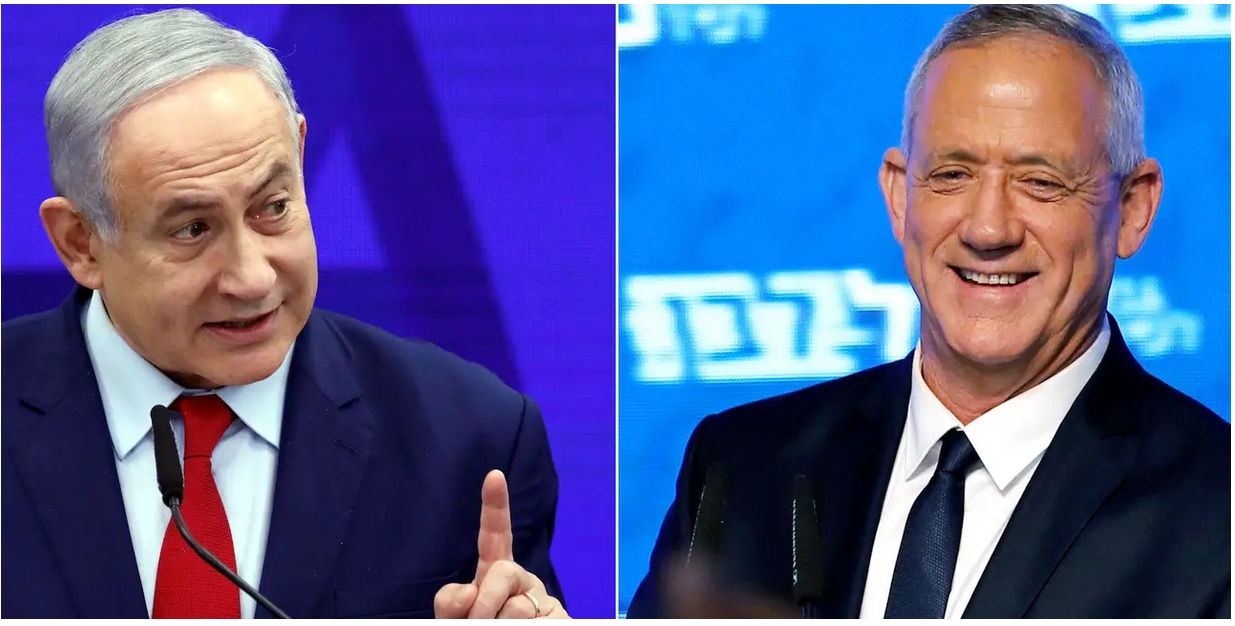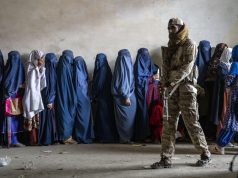.
As the State of Israel gears up for fresh elections, the State of Israel appears more paralyzed than ever. According to the Washington Institute for Near East Policy, the September redo election led to a split of 57 seats to 55 between the center-left and right blocs, with 8 seats going to a third swing bloc, meaning neither side reached the necessary majority of 61 seats in the 120-seat Knesset.
Both Benny Gantz and Benjamin Netanyahu also showed zero indication that they were willing to compromise enough in order to avoid a third election. The same can be said for Avigdor Lieberman. As a result, March 2, Israel is heading off to the polls. However, the question remains, who can lead Israel better despite the fiasco of the last election results?
Unfortunately, the Likud Party has not had an official platform in years, so the only way to judge whether Netanyahu is fit to continue as Prime Minister or not is to evaluate his actions as Prime Minister since 2009 and prior to that between 1996 and 1999. As for the Blue and White Party’s Benny Gantz, we don’t have much to go on but his platform for he never was a politician before the last elections. He is new to politics. He formerly served as the Chief of Staff of the Israel Defense Forces.

Netanyahu or Gantz: Who can best defend Israel against its enemies?
Although the Likud Party in recent years has not made a platform, the 1977 Likud Platform proclaims, “The right of the Jewish people to the land of Israel is eternal and indisputable and is linked with the right to security and peace; therefore, Judea and Samaria will not be handed to any foreign administration; between the Sea and Jordan, there will only be Israeli sovereignty. A plan which relinquishes parts of Western Eretz Israel undermines our right to the country, unavoidably leads to the establishment of a Palestinian state, jeopardizes the security of the Jewish population, endangers the existence of the State of Israel and frustrates any prospect for peace.”
However, the Likud Party has changed since 1977. Israeli Prime Minister Benjamin Netanyahu stated that he will support demilitarized Palestinian autonomy in parts of the West Bank but Israel still must maintain full security control from the Jordan River to the Mediterranean Sea and he won’t let the Palestinians declare a full-fledged state. He said that he believes in a solution where the Palestinians “have all of the powers to govern themselves and none of the powers to threaten us.”
Netanyahu has taken a number of steps in order to ensure that a threatening Palestinian state is never established. Under Netanyahu’s leadership, there has been increased construction in Judea and Samaria to the point that no full-fledged Palestinian state can ever be created without either granting Palestinian citizenship with equal rights to a significant Jewish minority or expelling entire cities from the area. Furthermore, the US Embassy was relocated to Jerusalem, which also led to Guatemala, Honduras, and the republics of Nauru and Vanuatu in the South Pacific recognizing Jerusalem as Israel’s capital. Around the same period of time, Russia and Australia recognized western Jerusalem as Israel’s capital. In addition, under Netanyahu’s leadership, the US also recognized that the Golan Heights as part of Israel. And after the US stated that the Israeli settlements don’t violate international law, Netanyahu now has vowed if re-elected, Israel will also annex the Jordan Valley.
In contrast, Blue and White supports a two state for two people solution in the context of a regional peace accord and is against settlement expansion until a peace accord is established. According to their platform, “This regional accord will include a separation between Israel and the Palestinians on the basis of two states for two peoples of which the major settlement blocs (Ariel, Gush Etzion, Maale Adumim) will remain a part of Israel. The accord will include strict security measures and will guarantee Israel’s right to defend itself against any terror threat without limitations as well as the demilitarization of the Palestinian state.”
Neither Blue and White nor Likud plan on relinquishing Israel’s sovereignty in Jerusalem, permitting a Palestinian right of return to Israel proper, withdrawing to the pre-1967 Armistice lines or permitting the Palestinians to have a militarized state. However, the problem remains, how can you ensure that a Palestinian state won’t be militarized and won’t be a threat to the State of Israel? In reality, the only way to do that is to grant the Palestinians limited autonomy in areas broken up by Jewish settlements and not granting them full statehood. Full statehood envisioned for the Palestinians as Blue and White supports is a recipe for disaster from an Israeli security perspective.
It should be noted that being opposed to Palestinian statehood does not make the Likud anti-peace. Despite their opposition to the two-state solution, the 1977 Likud platform does say, “The Likud government will place its aspirations for peace at the top of its priorities and will spare no efforts to promote peace.” Under the leadership of Israeli Prime Minister Benjamin Netanyahu, many Arab countries who were once enemies of the Jewish state have transformed into allies committed to the struggle against the Iranian regime. According to a recent poll published by Mitvim, a left-leaning think tank, under Prime Minister Benjamin Netanyahu, most Israelis feel that relations with the US, Europe and the Arab countries have improved dramatically. For the first time, both the Bahraini and Saudi leadership understand Israeli actions against Hezbollah. This has led to an economic relationship, as Bahrain also hosted an economic workshop in the framework of Trump’s “deal of the century.”
Since 2015, Israel has economic representation in Dubai. In addition, Israel is increasingly cooperating with Egypt in its fight against terrorism in Sinai. Both Egypt and the Gulf states despise not only Iran but also the Muslim Brotherhood, of which Hamas is the Palestinian branch. This recent Israeli-Sunni Arab cooperation would have been impossible without Netanyahu’s serious approach to the Iranian threat.
Throughout his political career, Netanyahu has argued that he is Mr. Security. Since Netanyahu became Prime Minister in 2009, there have been two major military operations against Hamas in Gaza: Operation Pillar of Defense and Operation Protective Edge. Operative Protective Edge was such a major blow to the Gazan terror groups that there has been no major operation since then. It is true that there have been flare-ups since Operation Protective Edge. The Knife Intifada and the Great March of Return were very violent, as was the kite terror and the bombardment of rockets on Southern Israel time and again. But Netanyahu has managed to successfully contain these threats enough so that a major military operation won’t be needed. He understands that going into Gaza once again is a no-win situation for everyone. He knows that Israel cannot expect to do more to Hamas than contain them. However, thus far, due to his sound security policies, Netanyahu has managed to contain the violence. Thus, the nightmarish situation that Israelis experienced during the Second Intifada with Palestinian suicide bombers constantly blowing themselves up is a thing of the past.
Netanyahu is also Mr. Security when it comes to confronting Israel’s other foes outside the Palestinian arena. He is a staunch opponent of the Iranian regime and has done everything in his power in order to fight against Iran, even if it meant speaking out against Obama’s nuclear deal in front of the US Congress. He successfully encouraged US President Donald Trump to pull the US out of the nuclear deal, to declare that the Iranian Revolutionary Guards is a terror group and to impose crippling sanctions on the mullah’s regime. In recent times, Israel has bombed Iranian targets in Syria and there has been talk that Netanyahu may engage in pre-emptive strikes against Hezbollah despite the fact that Israel is in the middle of an election. Thus, it is very hard to argue that Netanyahu lacks experience fighting against terrorism and defending the State of Israel against its enemies. Indeed, he is the most qualified candidate in this arena.
In contrast, Gantz as the former IDF Chief of Staff has extensive military experience that can assist him in defending the State of Israel against terror groups and rogue regimes militarily as a commander-in-chief. However, he lacks the political experience in order to lead Israel on the diplomatic front and to fight against Israel’s enemies utilizing more covert means. This is reflected in the Blue and White Platform when Gantz’s party argues that Israel should have a full-scale military operation in response to any and all rocket fire from Gaza. Gantz lacks the political experience to understand that there is no military and no political solution to the situation in Gaza, without unacceptably high Israeli casualties. Responding in full force to all rocket fire would lead to an escalation with no end in sight.
In contrast, Netanyahu knows how to avoid making reckless decisions and to find covert ways of defending Israel. He understands that the best answer to the Gaza quagmire is containing the threat and deterrence. He knows that if Israel has a strategic advantage, Hamas can be deterred from harming Israel and be forced into signing a long-term truce with Israel, especially if they got something to lose by not containing the violence. However, he knows that Hamas will never sign a peace deal with Israel and a full-scale Gaza invasion will only make the situation worse. This is wisdom that Gantz lacks for he does not have enough political experience.
Defending Israel’s cultural heritage: Who is our man?
The famous writer Albert Camus once stated, “Without culture and the relevant freedom that it implies, society even when perfect is but a jungle. This is why any authentic creation is a gift to the future.” For this reason, it is of primary importance that any Israeli political leader be committed to the preservation of our Jewish heritage in the State of Israel. The preservation of our heritage begins with education. For this reason, Netanyahu has vowed that for his next term as prime minister, he plans to keep the education ministry with his ruling Likud Party. He stated: “Education is the important thing that we aspire to do in order to continue to install Zionism and excellence in every child in Israel.”
Under Netanyahu’s rule, installing Jewish religious values and Zionism in Israel’s youth has been a top priority. Special heritage trips have been introduced for high school students so that they will have the opportunity to strengthen their attachment to the Land of Israel. On top of that, Netanyahu has done more than any other prime minister before him to educate Israeli youth about the history of Jews from Arab and other Muslim countries. A special day has been established in order to commemorate the Jewish exodus from the Islamic world and schoolchildren in Israel are given special activities on that day. Prior to this initiative by Netanyahu, history courses in schools across the State of Israel were very Euro-centric and to a large extent ignored the rich cultural heritage that the Jewish communities from the Muslim world have to offer.
Netanyahu’s efforts to educate the general population about Mizrahi history, heritage and culture also extends to the fine arts. He appointed Miri Regev, a Moroccan Jewish woman, as culture minister and she has done everything in her power to ensure that all theaters and cultural centers within the Jewish state also do plays and concerts promoting the Mizrahi heritage. For example, under Netanyahu, the Netanya Cultural Center has offered Ladino music nights, Moroccan music nights, Turkish music nights and various plays about Morocco of which some of them are in Moroccan Arabic. Prior to Netanyahu, most cultural centers and theaters in Israel were euro-centric.
Although the Ethiopian Jews are not Mizrahi, they too have benefited from Netanyahu’s pro-Mizrahi initiatives. Along with a greater awareness for Mizrahi culture, there has also been a greater understanding of Ethiopian Jewish culture. Pre-school children in Israel today are taught Ethiopian dancing and learn about traditional Ethiopian holidays. None of this existed before the Netanyahu era.
Aside from demonstrating the utmost respect for the Mizrahi and Ethiopian cultural heritage, Netanyahu has also shown that he greatly values Orthodox Judaism and respects the beliefs of religious people. As Prime Minister, Netanyahu has maintained the status quo agreements, which respect the right of religious Jewish people not to travel or work on Shabbat. This has enabled everyone to enjoy a full day of rest in accordance with the Jewish tradition as forcing a worker to work on Shabbat is illegal and there is no public transportation on Shabbat in Israel. This status quo agreement that Netanyahu has preserved has helped to maintain the character of Israel as a Jewish and democratic state. If this legislation did not exist, then many religious bus drivers and Israel Railway workers would not be able to find jobs.
In contrast, the Blue and White Party platform states that they seek to have public transportation on Shabbat. Furthermore, their platform asserts that they desire “a more liberal approach to generate strong roots and values for the present and future,” which would be more inclusive of Arabs and other minorities as well as other branches of Judaism, such as the Reform Movement. However, while seeking to do this, they also seek to violate the status quo agreements and by doing so, they demonstrate their contempt for traditional Orthodox Judaism in the eyes of many Israelis. Furthermore, historically, leftist movements in Israel generally are more Ashkenazi centric and there is a long history of leftist parties in Israel persecuting Mizrahi and Sephardic Jews. While it is true that Blue and White is a center-left party and was not around when all of these persecutions took place, most Mizrahi Jews still remain staunch Netanyahu supporters for they feel that the Likud speaks their language more, as Likud demonstrates more respect for traditional Judaism.
It’s the economy stupid
The 1999 Likud Party platform proclaimed that the party is in favor of a free economy, stating that the cumulative experience in Israel and the world shows that a centrist policy based upon socialist economic principles leads to social, moral and economic bankruptcy. Furthermore, it pointed out that an economy based upon freedom and entrepreneurship enables growth and well-being over the long-term. So far, these basic Likud principles have enabled the State of Israel to thrive economically and to become the Start Up Nation. However, it is also true that Blue and White does have some good economic policy ideas, such as teaching the core curriculum to Haredim and extending the school day to 4:45pm. These ideas are good for they will increase the eventual workforce in the Israeli economy. However, Blue and White still only has some good ideas in their platform and no concrete experience in leading the Israeli economy.
Conclusion
When it comes to evaluating who can lead Israel the best, I select Israel’s incumbent Prime Minister Benjamin Netanyahu. He is the best leader for Israel’s security. He has a proven track record demonstrating that he cares about the preservation of Israel’s cultural heritage and taking actions on this front. Although Blue and White does have some good ideas in their platform, the Likud has a proven economic track record, which is something Blue and White lacks. Therefore, for the sake of Israel’s security, cultural heritage and economy, let us hope that he is re-elected.
Round Three in Israel: Domestic Dynamics and Foreign Policy Implications
Netanyahu approves Jordan Valley annexation bill after US policy change
Netanyahu calls for Palestinian state minus
Original party platform of the Likud Party
Security and Foreign Relations Platform of Blue and White
Why the Prime Minister has earned a 5th term
 Rachel Avraham is a political analyst working for the Safadi Center for International Diplomacy, Research, Public Relations and Human Rights, which is run by Mendi Safadi, a former Likud Candidate for the Knesset and a former chief of staff of former Israeli Communication Minister Ayoob Kara. Since 2012, she has been working as an Israel-based journalist and writer, covering Iran, Kurdistan, Turkey, Iraq, Syria, the Israeli-Palestinian conflict and other developments in the greater Islamic world.
Rachel Avraham is a political analyst working for the Safadi Center for International Diplomacy, Research, Public Relations and Human Rights, which is run by Mendi Safadi, a former Likud Candidate for the Knesset and a former chief of staff of former Israeli Communication Minister Ayoob Kara. Since 2012, she has been working as an Israel-based journalist and writer, covering Iran, Kurdistan, Turkey, Iraq, Syria, the Israeli-Palestinian conflict and other developments in the greater Islamic world.
Her articles have appeared in the Washington Times, the Hill, Front Page Magazine, the Daily Wire, the Christian Post, the Baltimore Jewish Times, the Jerusalem Post, Israel Hayom, Ahval and many other publications across the globe. She received her MA in Middle Eastern Studies from Ben-Gurion University. She got her BA in Government and Politics with minors in Jewish Studies and Middle Eastern Studies from the University of Maryland at College Park.
.
.
.





